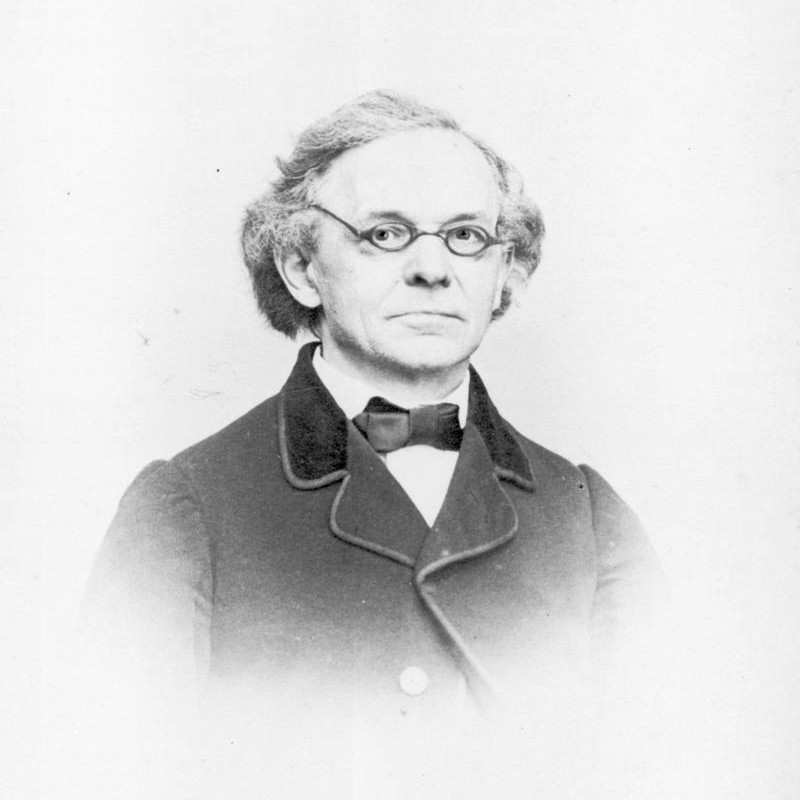
Ernst Friedrich Richter
Ernst Friedrich Eduard Richter (24 October 1808 – 9 April 1879), was a German musical theorist and composer, born at Großschönau, Saxony. He first studied music at Zittau, and afterwards at Leipzig, where he attained so high a reputation that in 1843 he was appointed professor of harmony and counterpoint at the conservatorium of music, then newly founded by Felix Mendelssohn. On the death of Moritz Hauptmann on 3 January 1868, he was elected cantor of Thomasschule zu Leipzig, conducting the Thomanerchor, an office he retained until his death. He is best known by three theoretical works: Lehrbuch der Harmonie, Lehrbuch des einfachen und doppelten Contrapunkts and Lehrbuch der Fuge, valuable textbooks known to English students through the translation by J.C.D Parker and Franklin Taylor. "Ernst Friedrich [Eduard] Richter [(1808-1879)]...His compositions include psalms for chorus and orchestra, motets, two masses, a Stabat Mater (voices only), part songs, string quartets and sonatas, and also pieces for organ and for piano. But it is his treatise on the theory of music that will keep Professor Richter's name from oblivion. As already mentioned, two English editions have appeared: one in London (printed without Richter's leave, by the way) by Mr. Franklin Taylor, which must by no means be accepted as a translation, but merely as a very moderate adaptation; the other, unfortunately little known in this country, printed with Richter's consent by John P. Morgan, in New York. The latter translation is most carefully done, and forms a strong contrast to the English edition. On last Good Friday, the 150th anniversary of the first production of Bach's Matthew Passion, the dear old cantor and beloved professor [Richter] was laid to his last rest, accompanied to his grave by the solemn sound of the beautiful choral, Jesu, meine Zuversicht. More hearty regret has rarely filled the hearts of those standing round a musician's grave. Once more the voices of his choir arose in Bach's beautiful melody to Wenn ich eimmal soil scheiden, and then with a last look at his coffin the crowd dispersed. But though gone to his last rest, the memory of many of us will long cherish, as one of the truest artists, most thorough musicians and excellent teachers, that we have ever met, the name of Ernst Friedrich Richter." |
Birth and Death Data: Born October 24, 1808 (Großschönau), Died April 9, 1879 (Leipzig)
Date Range of DAHR Recordings: 1927
Roles Represented in DAHR: lyricist
 = Recordings are available for online listening.
= Recordings are available for online listening.
 = Recordings were issued from this master. No recordings issued from other masters.
= Recordings were issued from this master. No recordings issued from other masters.
Recordings
| Company | Matrix No. | Size | First Recording Date | Title | Primary Performer | Description | Role | Audio |
|---|---|---|---|---|---|---|---|---|
| Brunswick | E25800-E25801 | 10-in. | 12/29/1927 | Drauss’ ist alles so Prächtig | Theo. Lange ; Karl Priester | Male vocal duet, with orchestra | lyricist |
Citation
Discography of American Historical Recordings, s.v. "Richter, Ernst Friedrich," accessed November 22, 2024, https://adpprod2.library.ucsb.edu/names/108030.
Richter, Ernst Friedrich. (2024). In Discography of American Historical Recordings. Retrieved November 22, 2024, from https://adpprod2.library.ucsb.edu/names/108030.
"Richter, Ernst Friedrich." Discography of American Historical Recordings. UC Santa Barbara Library, 2024. Web. 22 November 2024.
DAHR Persistent Identifier
External Sources
Wikipedia: Ernst Friedrich Eduard Richter
Grove: Ernst Friedrich Richter
IMSLP: Ernst Friedrich Richter
RISM: Ernst Friedrich Richter
Linked Open Data Sources
LCNAR: Richter, E. F. (Ernst Friedrich), 1808-1879 - http://id.loc.gov/authorities/names/n85828656
Wikidata: Ernst Friedrich Eduard Richter - http://www.wikidata.org/entity/Q64426
VIAF: http://viaf.org/viaf/59938027
MusicBrainz: Ernst Friedrich Eduard Richter - https://musicbrainz.org/artist/1532f90f-3e7d-49ac-bcdf-1db05fe4b5ac
ISNI: 0000 0001 0837 892X - http://www.isni.org/isni/000000010837892X
Wikipedia content provided under the terms of the Creative Commons BY-SA license
Feedback
Send the Editors a message about this record.
